Samantha Bryant's Blog, page 64
August 3, 2016
#IWSG: The Ups and Downs of Anthologies
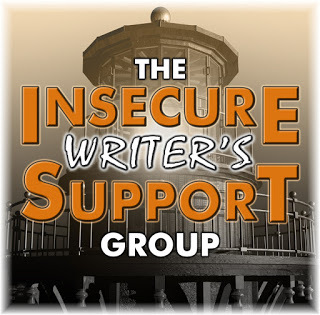
I had a strange experience this this month. I got published and didn't know it had happened. I only found out the book was out three weeks after its release, and even then, it was kind of by accident.
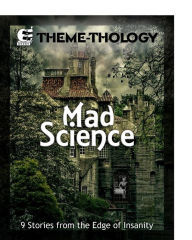
The publication was a short story in an anthology. I love anthologies, both as a reader and a writer. They are like sampler platters and gateway drugs into other books and authors. You can try a lot of different things for a low investment of time and money, since the pieces are shorter. I've discovered more than one writer I love to read this way.
But anthologies, I'm learning now that I've been published in a few, are complex critters, even more so than novels, because they require the cooperation and coordination of so many different people. To publish a novel, there's just the one writer to worry about and whatever team of professionals gets brought in (editors, artists, publishers, proofreaders, etc.). An anthology has all those folks, plus several different authors to work with.
So, I thought it might be fun to share my adventures in anthologies so far. It's an uncertain process that can definitely bring out all your insecurities.
The very first anthologies I was ever in were compilations. Those were quite painless. Basically, the publisher had already acquired the rights to publish the piece in a magazine AND in a compilation anthology at the same time. My work was included in a couple of poetry anthologies this way including Bearing Witness , a collection of poetry by teachers about teaching. For these, I had to submit my work, but getting into the book was a bonus publication, nothing that required additional effort on my part.
I've also been in a couple of group-produced anthologies. What I mean by that: collections produced by the members of an already existing group. IWSG has done a couple of these (I had an essay in the The Insecure Writer's Support Group Guide to Publishing and Beyond ). My critique group worked together to put out a collection with one short story from each of us: The Seven Story House . Classes I've been a part of have sometimes put together a book as well. The amount of effort those have taken for me depended on the project and what level I was in charge at.
As I seek to gain more publication credits, I've been watching for open call anthologies. Here, I've had mixed experiences. A lot of times, these anthologies are really small productions--like a one-person or one family small publisher. So, while it's easier for an unknown writer to get a piece accepted into them, it's also really easy for the projects to fall apart. All it takes is one life crisis to take down a project when the team working on it is so small. One that I was super excited about ended up being abandoned all together. Another one that I thought was a longshot ended up being produced and is selling well. Just goes to show you never can tell, I guess.
For these, I submit my work, sign the contract and take the payment (if there was one--sometimes you're paid in a share of the profits, if there are any, or you're participating for exposure or charity) and hope for the best on the book coming out. There can be long communication gaps and delays that can leave you doubting that the editors liked your work. That's the story of the Theme-Thology: Mad Science , the one that came out without my knowing it had. HDWP is a one-family kind of small press, and, given the troubles that descended upon them, I'm pleasantly surprised that the book actually came out, and don't really blame the editors for failing to get it out with fanfare and trumpets. It was an act of love and devotion that they pulled the project together in the end.
Now I'm working on a novella for an invitation call. These are pretty awesome because there's little doubt that my work will be accepted and published. After all, the publisher/organizer contacted me and asked me to contribute something. They must already like my work. My first one of these was put out by the same publisher who does my novels. Curiosity Quills put out Indomitable Ten to showcase all the superhero and super-villain writers in their stable and give us a chance to get some cross promotion by attracting each other's audiences. The one I'm working on now is for a charity anthology and I've got one more on my writing schedule for August.
So, there you go: my writing life in anthologies. It's a varied landscape. What experience have you had with anthologies? Do you like reading them? _____________________________________For #IWSG this month, we were asked to respond to this prompt: What was your very first piece of writing as an aspiring writer? Where is it now? Collecting dust or has it been published?
Defining my "very first" piece of writing as an aspiring writer would mean digging through childhood crates at my mom's house, so I think I'll talk about my first novel. I "finished" His Other Mother in 2012. It was the first book-length work I ever completed. It's been around submission land off and on ever since, with some interest but no contract. I still believe in the book and its potential for finding a readership, but I'm not investing that much energy in it right now because my superhero stuff is selling and has my passion right now. After its most recent rejection, I've shelved His Other Mother for a bit. I think I've learned a lot about writing since 2012 and I plan to give the book another revision before I send it out again. But, that's low on my priority list for right now, so it may be a while until it happens.
If you're not already following #IWSG (Insecure Writer's Support Group), you should really check it out. The monthly blog hop is a panoply of insight into the writing life at all stages of hobby and career. Search the hashtag in your favorite social media venue and you'll find something interesting on the first Wednesday of every month.
Published on August 03, 2016 03:00
July 27, 2016
Fan Girling: Stranger Things
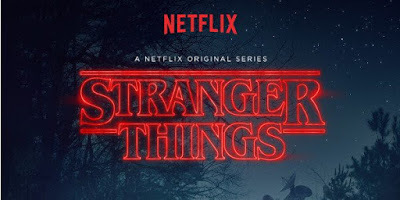
Stranger Things is a new Netflix Original series that I plowed through this week (G-d I love summer vacation!) and there's so much I love about it. Obviously, I'm the target audience. I'm 45, which means I remember the early 1980s setting very well, having spent puberty there myself. I was a huge Stephen King fan during the same time period, and felt at home as soon as I saw the fonts in the title sequence. I'm still a fan of weird tales and all things supernatural in fiction.
This show really delivers. Without getting too spoilery (I'll try to stay relatively spoiler free throughout this article), there's a central mystery involving shady and spooky stuff. There are three groups of people working on the problem, and all of them are ill-equipped in different ways to be the hero the story needs. It was beautiful how the story balanced the three groups:
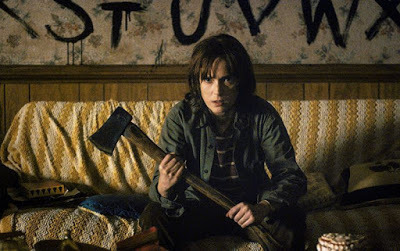
The adults: Joyce Byers (played by Winona Ryder) and Jim Hopper (played by David Harbour). They both come to believe in the supernatural explanation pretty easily, but they are both adults easily dismissed by others. Joyce has a history of "anxiety issues" and public hysteria surrounding an ugly marital history. You can see that her position in the town wasn't one of dignity and respect even before she started trying to talk about what was happening in her life. Hop has a history of grief and alcoholism and any strange behavior on his part has people wondering if he fell off the wagon. They're perfect in their unreliability. The "no one will believe us so we're on our own" vibe the story needs.
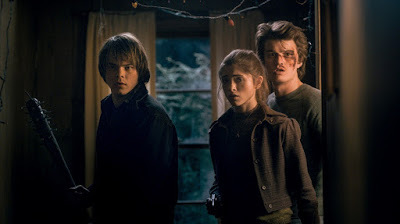
The Teenagers: A classic misunderstood loner, nice girl, and popular bro trio. But all of them are deeper and more nuanced than you would have seen in an 80s show. I was pleasantly surprised by the character arc of the "bro" in particular. They come to believe in the big bad a little more slowly, drawn into it by younger siblings (for two of them) and the disappearance of another teenager. Our loner boy, Johnathan Byers (played by Charlie Heaton) wants to protect his mother and step up into a father-protector role that he's not quite ready for. Nancy Wheeler (played by Natalia Dyer) is dismayed when ordinary teen drama about jealousy and who's cheating on who complicates her monster hunting. Steve Harrington (played by Joe Keery) transitions from a boy-who-only-wants-one-thing into someone who admits his wrongs and makes amends, someone who can be a real ally. They add the "we can't just sit here and do nothing" recklessness element.
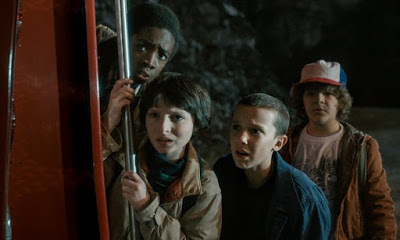
The children: Mike Wheeler (played by Finn Wolfhard), Dustin Henderson (played by Gaten Matarazzo), and Lucas Sinclair (played by Caleb McLaughlin) are a group of middle school D&D players, along with their friend Will Byers (played by Noah Schnapp). They are smart, independent, and capable kids, but also imaginative and knowledge (through D&D) about monsters. When Eleven "El" (played by Millie Bobby Brown) comes into their lives, they are the quickest to realize that there's more to her and to the central mystery of the story than it appears on the surface. In classic kid mode, they (like the adults) are sure no one will believe them, so they take matters into their own hands. The scenes where the kids are frantically riding all over town on their bikes following leads and sleuthing are straight out of things like ET and the Goonies in their nostalgia and tension.
It's only eight episodes, so you don't need too much time to see the whole season, and it ends in a beautiful place, with plenty of possibility for future story, but feeling finished enough that you won't feel frustrated or cliff-hangered. So, if you're looking for a good, tense, spooky summer show, I recommend this one!
Published on July 27, 2016 03:00
July 20, 2016
Deep Talk: Or Why I Love Fan Conventions
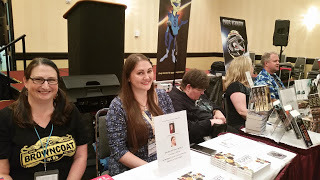 Me with Angela Pritchett at the Southern Voices Book Launch Party. Picture by Leona Wisoker of The Scribbling Lion.So, I just got back from Con-Gregate, a small sci-fi/fantasy convention in High Point, North Carolina, where I was a guest author (You can read about what I was doing there here and about the con itself here). I knew I was going to have fun, and my expectations were exceeded. There's nothing like spending time with people who love the same things you are passionate about. And--hey, bonus! I sold some books, too.
Me with Angela Pritchett at the Southern Voices Book Launch Party. Picture by Leona Wisoker of The Scribbling Lion.So, I just got back from Con-Gregate, a small sci-fi/fantasy convention in High Point, North Carolina, where I was a guest author (You can read about what I was doing there here and about the con itself here). I knew I was going to have fun, and my expectations were exceeded. There's nothing like spending time with people who love the same things you are passionate about. And--hey, bonus! I sold some books, too.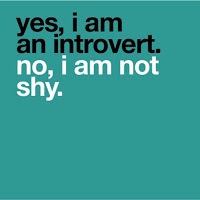 I was thinking about what makes time at a con so great. After all, there's a lot about a con experience that is hard on me. There's seldom enough quiet recharge time for an introvert like me. Or at least you have to choose whether you'll take the time for personal recharge or the opportunity to connect with like-minded folk (never an easy choice).
I was thinking about what makes time at a con so great. After all, there's a lot about a con experience that is hard on me. There's seldom enough quiet recharge time for an introvert like me. Or at least you have to choose whether you'll take the time for personal recharge or the opportunity to connect with like-minded folk (never an easy choice).It costs money and I'm a schoolteacher in North Carolina, so I don't really have any of that. (As a guest author, usually my con fees are waived, but I will still need to get myself there, pay for a place to sleep and buy food and drinks).
If I'm to attend, then I have to rely on others (my husband and sister, usually) to take over the things I would normally have been doing--giving my kids rides, walking the dog, feeding people, etc. When you're a "giver" sort of person, it can be hard to be the one receiving help. I have to fight the guilt over being a little selfish and taking this time for me and my writing career.
But, still, even with all the cons of cons (ha! I amuse me) I *love* going to cons.
I was sitting in a session given by AJ Hartley, a Special Writer Guest of the con, called "What Can Genre Authors Learn from Shakespeare?" when I realized what it is. It's the level of discourse.
In my ordinary day to day life, I teach middle school. Some of my colleagues and students are brilliant shining minds that dazzle and challenge me, but a lot of them aren't. Not all of them are there because they want to be or because they love what we've come together to do. In fact, how few of them want to be there is a little depressing when you consider that I got into teaching, in part, to share my passion for learning and books.
But, as I sat in that session, I realized with a kind of rush that I was in a room of 30 some odd people (and some of us are really odd people) who love both speculative fiction AND Shakespeare. People with passionate opinions about things like whether the ghosts are really there in Macbeth and Hamlet or are just in the minds of the haunted.

Over the course of my weekend, I was part of conversations about moral boundaries in superhero stories, what white straight people writing more diverse characters need to consider, what constitutes cultural appropriation, why representation matters, what tropes serve stories well and which ones are offensive, advantages and disadvantages of different paths to publishing, why gender and race are more than check-box categories, and the difference between true (nonfiction) and heart-true.
My TBR list which is already longer than the time I will probably be on this earth grew by leaps and bounds, as did my list of shows to watch, music to explore, clothing to buy, places to go, and stories to write. It reminds me of the best moments of college.
It's worth the introvert coma I'll probably be in all this week just to talk this deeply for a few days. It really is.
Published on July 20, 2016 03:00
July 13, 2016
Guest Post: Rena Rocford: Of Pens and Swords
Thanks for letting me invade the blog, Samantha! Today I’m talking about how we chase our dreams. In my newest book, Of Pens and Swords, the Main Character, Cyra pursues her dreams with a dogged stubbornness. She’s determined to make the Olympics, and she sacrifices everything on the way, even her own heart. This, of course, leads to trouble, and if you want to, you can read more about it in the book. We’re here to talk about how you can chase your dreams without running yourself and your friends into the ground.
Here it is Rena’s Guide to Chasing and Catching Rainbows (insert Kermit the Frog song here)
Have a goal.Congratulations, you have a dream! No, I’m not being mean here. There are thousands—millions—of people in the world who don’t have a dream. They don’t have this thing you’ve found that burns in your mind. Now do yourself and everyone around you a favor: WRITE IT DOWN. Sometimes, we get lost along the way, so it’s important to write your dream down. This way if it changes, you’ll know. You’ll be able to point at it and say “this is my dream.” Excellent: Target Acquired.
No I in Team. I know, this is so cliché it almost hurts, but the truth of the matter is that you’re gonna need support. If you have a significant other, explain to them what your dream means to you. You’re going to need to prioritize your life and you’ll never get anywhere with your dream if it isn’t on your list. If you don’t have a significant other, enlist your friends and family. Most of them will be happy to help however they can. Don’t assume they’re just “being nice.” Many people would love to help you with your dream (hint: this is why it’s useful to have it well defined, so you can explain it to others when recruiting them to your dream).
Sometimes, There’s No I In Team Because I Is Off Quietly Working Hard While Team Is Busy Having A Party. You want to achieve your dream? Then you’re gonna have to do a ton of work, and no one is going to make sure you put your nose to the grind stone. You’re going to have to be the one duking it out with that voice in your head that says things will be fine after a donut and a Netflix binge session. There is a component of sacrifice to your dreams, no doubt about it.
Victories Are Planned. This is important because you’ll need to know something about your dream if you want to make it work. Planning out how to get your dream can sometimes fill in the gaps between “I’d like to be a writer” to having actual books in your hands with your name on it.
No Plan Survives Contact With the Enemy. I’m glad you have a plan, now, remember that you have to be ready to discard it at a moment’s notice, bend it for the crazy things that crop up in life (deaths, births, accidents, etc.). This doesn’t mean you aren’t going to stick to the plan, but it does mean that you might need to revise the plan at the drop of a hat. Semper Gumbi.
Change is Constant.Or give yourself room to change your dream. If you outgrow your dream, that’s okay. You can quit. So you had a dream to write a novel, and you’re five years in and you haven’t written chapter 1 yet. Don’t sweat it. Find a new dream and move on. This one doesn’t seem to be for you, and that’s okay. You can also take a break and come back.
Rome Wasn’t Built In A Day. Sadly your dreams will not come true quickly. There will be delays and setbacks. There will be bumps in the road and your process. Give yourself time. Forgive yourself for the crazy feeling that you have to hurry up. This isn’t a race, and there’s no ribbon at the end—unless you were dreaming about winning races, in which case, get a move on it buddy.
If this seems like something you’ve seen before, it’s because you have. There’s a ton of luck in success. A ton. But the people who find that magical cross section of talent, effort, and luck all put in the effort. The other two factors are completely out of your control. Good luck out there!
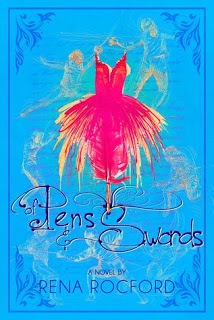 Seventeen-year-old Cyra Berque wants two things in life: a date with Rochan and a chance to fence at the Olympics. But people with one hand don’t normally fence, and girls with big thighs don’t get the boy. Knowing that she wants to make the Olympics, Cyra’s coach sets her up with another coach, one who could take her all the way to the top, but the new coach costs more. Feeling her dreams slipping out of reach, Cyra agrees to tutor a ballerina with a rich father and a D minus in English. It’s triple the pay and triple the pain. The ballerina isn’t interested in passing classes―she wants Rochan, and she’s promised she’ll turn her D minus into a full-fledged F if Cyra doesn’t help her win the heart of Rochan.
Seventeen-year-old Cyra Berque wants two things in life: a date with Rochan and a chance to fence at the Olympics. But people with one hand don’t normally fence, and girls with big thighs don’t get the boy. Knowing that she wants to make the Olympics, Cyra’s coach sets her up with another coach, one who could take her all the way to the top, but the new coach costs more. Feeling her dreams slipping out of reach, Cyra agrees to tutor a ballerina with a rich father and a D minus in English. It’s triple the pay and triple the pain. The ballerina isn’t interested in passing classes―she wants Rochan, and she’s promised she’ll turn her D minus into a full-fledged F if Cyra doesn’t help her win the heart of Rochan.
Buy it now on Amazon!
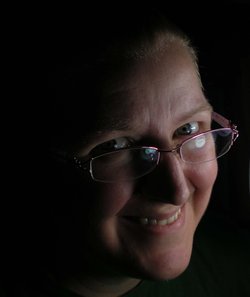 About the author:When Rena Rocford isn’t taking over the world one book at a time, she can be found living out her mild-mannered life, wearing out dance shoes, raising a herd of pets, and enjoying her time with her family in beautiful Northern California.a Rafflecopter giveaway
About the author:When Rena Rocford isn’t taking over the world one book at a time, she can be found living out her mild-mannered life, wearing out dance shoes, raising a herd of pets, and enjoying her time with her family in beautiful Northern California.a Rafflecopter giveaway
Published on July 13, 2016 03:00
July 6, 2016
Finding Your Tribe: #IWSG Choosing Your Networks
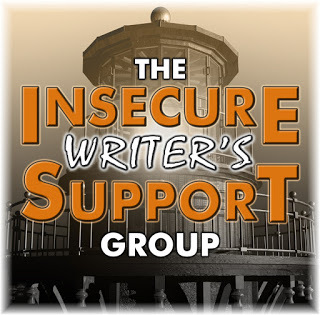
Writing is a solitary endeavor in a lot of ways. Maybe that's why writers reach out to each other so much: for moral support, technical advice, sympathy and empathy, promotional escapades, etc. With the growth of online communities, there are more and more opportunities to find your tribe: like-minded folk pursuing similar aims. There's also a lot of just plain annoying social media noise out there.
Today, I'm annoyed by that noise and pondering the writer-social groups I've found helpful and why. There's only so much time and you hate to waste it on groups that don't feed your practice. So, here's what's been working for me:
First, of course, is IWSG! The Insecure Writer's Support Group is a good example of a low risk, get what you need out of it group. It's all online and free, so geography, schedules, budget and time zones don't have to get in your way. There's a variety of ways to participate.
You can, for example, just lurk, reading about other writer's successes, failures, worries, and angst and learning from those stories quietly. Or you can write about your own worries once a month, knowing that other people are going to read, consider and comment. (The reciprocity expectation of IWSG is, in my opinion, key to its success). You can explore the resources on the site and find contests, potential publishers, and how to advice. You can go to the Facebook group for interaction and support on other days of the month. You can participate in larger ways by hosting or getting involved in publications the group puts together. It's very much a find-your-own-depth swimming hole.
But while IWSG is invaluable and wonderful, there are other kinds of groups, I've also found really helpful.
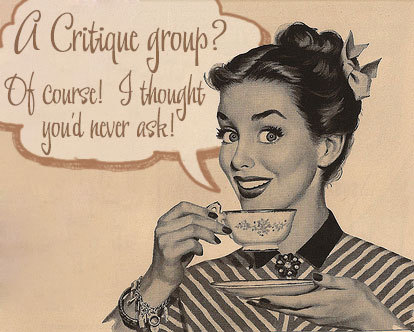
My in-person critique group has really helped me grow as a writer. (I've had more trouble with online critique groups where too many folks pop in in a drive by fashion and don't reciprocate). I found mine through an online ad by sheer luck and I've been with them for eight years. Finding a group that works for you can be difficult and might involve trying a few and being willing to leave if they aren't helpful for you, but when you find the right one, it can really take your writing to the next level. Some factors to consider when shopping for a critique group:What level are the other members at? Consider whether you want to be in a group of all beginners where we figure this out together, or where you have a mixture of ranges of career status to seek advice and learn from. (Both are valid--you just have to figure out what *you* need)What's the depth of critique offered? Is it a group that offers primarily only encouragement? Or is it a group that helps identify flaws and problem-solves with you? What's the level of commitment? Is it very casual where members flit in and out? Or is it more established, where writers work together over a long stretch of time? How often do they meet? How often will you get a turn? How much reading of other people's stuff will you need to do?What's the group personality like? Not everyone has a thick skin. Is criticism offered with a heart to help or a heart to hurt? Is someone in the group a bully? Are members so oversensitive that nothing ever gets said?
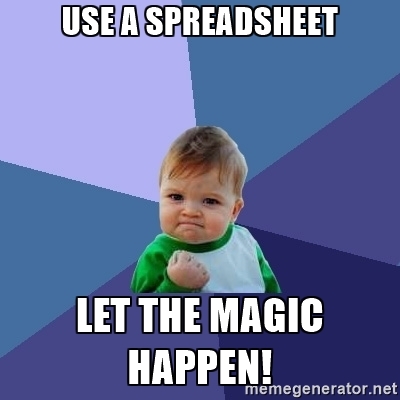
Then, there are accountability groups. Since I'm a novelist, I'm all about the word count. I know that doesn't work as a method for everyone, but, for me, building a chain of writing days was a complete game changer. I'm in three kinds of accountability groups right now and I get different things from each. Magic Spreadsheet is a spreadsheet that awards you points based on how many words you write and how many days in a row you write (maintaining your chain). The gamification model really works for me. Tracking my efforts lets me see how much I'm doing even when I don't feel like I'm moving forward. I've now written for more than 1,000 days in a row! (MS also has a very supportive group of folks using it that keep in touch through a Facebook group). Daily check in sorts of groups can be really helpful, too, in that moral support sort of way. Mine is a group of writers that I already knew from other settings that then formed a digital community for personal check ins. We talk a lot about our obstacles and how to get around them. Goal setting groups. My favorite of these is Jamie Raintree's The Motivated Writer. I like the setting of shorter-term goals, like what I will do THIS week, and the checking back in at the end of the week to cheerlead each other or boost each back up when we fall.
Now, Cross Promotional groups. Hmmm. Cross promotional groups are what got me thinking about this post today. I've recently been invited to kind of a lot of them. While they seem like a good idea on the surface, they can be tricky. There's a lot of link dropping without relationship building. There's a lot of failure to reciprocate. Or worse yet, an expectation to reciprocate when you don't feel good about the work of the other members or when it doesn't have much crossover with the readership for your own work. The whole thing feels kind of…seedy.
Too often it seems to turn a bunch of individual writers who are clumsy at social media promotion and relationships into a noisier group of clumsy promoters that everyone starts muting. I've pretty much given up on groups for this, feeling much better about a little cross promotion only with other writers I have long relationships with and whose work I personally admire.
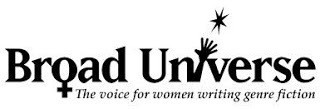
Lastly, there are professional organizations. These often come with dues to pay and commitments to honor, but they will connect you with other writers in your field who are the same kind of serious about it as you are. They will open opportunities for you. They will likely offer training of a sort, either through casual mentoring or even through full-blown courses of study. Unlike more casual organizations, they are all about learning to do this as professionals, rather than hobbyists.
I'm in two of these. Broad Universe which is an organization for women writing speculative fiction and Women's Fiction Writers Association which is for women writing work which classifies as women's fiction. WFWA offers classes on a regular basis on writing craft, promotion, social media, etc. They also hold contests. Their Facebook group is active and informative. Broad Universe has connected me with other genre writers for sharing of resources at conventions and sharing of publication information and advice. I value my work with both of these groups and highly recommend finding a group of this sort that fits the work you do.
So there you go! My two-cents, which turns out to more like twenty-five cents, on networking as a writer. How about you? What kinds of support groups and activities have been good for you? What's turned out to be a waste of time?
Published on July 06, 2016 03:00
July 1, 2016
An Interview with the Masterminds (Staff) Behind Con-Gregate
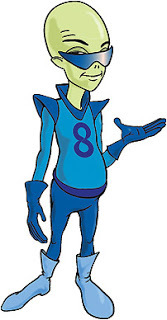 art by John GrigniIt's my pleasure to welcome James Fulbright (ConChair) and Tera Fulbright (Programming Director), two of the masterminds behind Con-Gregate to my blog today! I'll be attending Con-Gregate as a guest in just a couple of weeks and I had a few questions about the con:
art by John GrigniIt's my pleasure to welcome James Fulbright (ConChair) and Tera Fulbright (Programming Director), two of the masterminds behind Con-Gregate to my blog today! I'll be attending Con-Gregate as a guest in just a couple of weeks and I had a few questions about the con: What's the origin story of ConGregate? How did it come about?
ConGregate was originally supposed to be a Relaxacon, a place where fans could just come and hang out. The vision was a ConSuite, a small vendor room, and one programming room, that would be limited to round-table discussions. While we were in the process of working through the basic set-up of the company, a couple of key things occurred:
1. StellarCon, the area’s long-running, general SF con went on hiatus.What's special about ConGregate? What sets it apart from other small cons?
2. We found that no hotel would offer us a contract that was financially feasible, unless the fans would be willing to pay registration rates somewhere around $250.00 each. The reality was that we could rent enough space for a full SF con for the same amount of money that just a few small ballrooms would cost us, because a full scale con would have a significantly larger hotel room block.
When we got ready to announce the con, one thing we did was poll various fan groups about what they’d like to see more of in conventions. A disproportionally large number of the fans said, “more interactive programming.” It seems they were tired of the traditional panel format for conventions. In year one, we set-up several workshops that were very well attended. At the end of year one, the fans almost unanimously said they liked the programming where they could directly interact with the guests.
We decided that, moving forward, our focus would be fan interactive programming. Not just workshops, but more round-table panels and some TV style game shows. Anything, really, where the fans could interact with the guests, as well as other fans.
Looking back over past cons, what are some highlight moments?
Well, there have only been two cons so far, but Les Johnson, a retired NASA manager, attended the first ConGregate and did a few talks on the future of NASA that were well received.
Last year, we host HollyWeird Squares, based on the TV show by a similar name. We cycled about 20 contestants from the audience (fans and guests) through the game. It was a lot of fun and drew quite a crowd.
We noticed that cameras were making a comeback recently, and started having photography workshops to educate people on the proper used of their new, and very expensive, equipment.
What's new this year?
We’ve added a second game show, “Name That Show!” It will be similar the TV’s “Name That Song,” except instead of the contestants getting musical notes from which to name a song, we will provide a basic clue and then names of some of the actors in the show or movie. The fewer names the contestant bids, the more obscure the actor will be. In other words, if you say you can name the show in one actor, don’t expect us to give you the name William Shatter, if the show is Star Trek.
We are also expanding our photography workshop, and actually splitting it into multiple workshops. We will have still have a workshop on how to photograph cosplayers, but also one for the cosplayers themselves focusing on how to properly pose to for pictures, as well as offer basic make-up tips for photography. So, we’re covering, not only being behind the camera, but in front of it as well.
The members of the 105th will host Iron Maker, a competition between two teams to create a costume in 2 hours, without prior knowledge of the theme, or what materials they will have to work with during the build. And, naturally, we will be introducing a wild card into the builds at about half-way through the competition.
Finally, maybe one of the more unique opportunities for fans, will be a series of two Tia Chi workshops, conducted by our Writer Guest of Honor, Steven Barnes. Per Barnes, this will be a gentle exercise available to folks of all skill levels. Though we do recommend bringing appropriate clothing.
What are your dreams for ConGregate in the future?
Oh boy, that’s a big question!
Well, obviously we want to grow the con, but in a controlled way. We experienced 25% growth from year one to year two, and it’s looking like we might come in at about 15% growth this year. The problem we will face is the con hotel cannot handle too many more years of this level of growth. Sooner or later, probably sooner, we will need to decide whether to stay where we are, and cap attendance, or find a larger venue.
Beyond that, we’d like to continue with the interactive format. We want to branch out and see if we can do more hands on workshops for costuming, con-running, fitness, writing, etc.
For further down the road, we’d also like to see if we can arrange in bring in a Media Guest of Honor. Space and cash will be the ultimate factors whether that’s possible.
Published on July 01, 2016 03:00
June 29, 2016
My Next Con
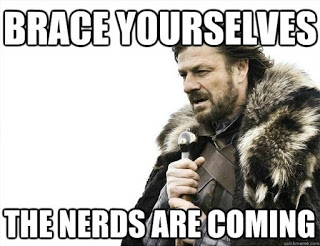
One of my favorite things about becoming a published author has been the opportunity to participate in cons. For any readers who aren't quite as geeky as I am: "Con" is shorthand for "convention" as in groups of people with similar interests getting together to partake, talk about and enjoy their hobbies. In this case, we're talking about science fiction/fantasy conventions in particular, where superhero novelists can talk superheroes with other superhero geeks with impunity. In other words: heaven!
There are huge cons like Comic Con International that even make the regular TV news, and there are medium sized and smaller more niche ones across the country. I have limited funds and time, so mostly I've been trying to "break into" the ones more local to me. I've participated in Atomacon, Illogicon, and now: Con-Gregate!
I'm really excited about going to Con-Gregate. If you are anywhere near High Point, NC, you should come, too!
Here's a preview of the awesomeness I get to be a part of and who my playmates will be:
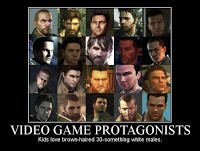 Friday 15 July: 2:00 p.m.
Friday 15 July: 2:00 p.m.
Terrible Reasons Not to Include Diverse Characters in Fiction, with moderator Stuart Jaffe, Special Literary Guest AJ Hartley, my friend and fellow Literary Marauder Darin Kennedy, and Emily Lavin Leverett. The title says its all on this one, I think.
Friday 15 July: 4:00 p.m.
How to Introduce SF/F to Kids Under 13, with moderator Angela Pritchett and Jason Gilbert. As the mom of a tiny geek, I'm looking forward to sharing what we love to read and getting some new titles for our TBR in return.
Friday 15 July: 6:00 p.m.
Developing Characters Beyond a Single Dimension with moderator Glenda Finkelstein, Paula S Jordan, Darin Kennedy, and Larry N. Martin Even minor characters still need to be characters and not just cardboard cutouts. We'll talk about how to do that.
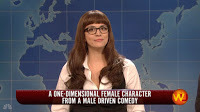
Friday 15 July: 8:30 p.m.
Southern Voices Book Launch Party with David B. Coe, John G Hartness, Stuart Jaffe, Chris Kennedy, Cheralyn Lambeth, Gail Z Martin, Michael G Williams. All of us have recent new releases and we're getting together to celebrate our new books together. Come find your next read!
Friday 15 July: 10:00 p.m.
Java and Pros with John G Hartness and Gail Z Martin (and coffee!) A quieter moment with only a couple of authors in the room.
Saturday, July 16: 10:00 a.m.
Superheroes and Why We Need Them with moderator Maya Preisler, John G Hartness, and Steven S. Long Superhero stories have been around a long time. We'll talk about some of the reasons these stories endure across generations.
Saturday, July 16: 4:00 p.m.
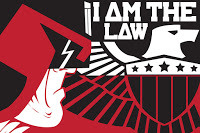 Superheroes and the Law with moderator Steven S. Long, and Edward McKeown To what degree should superhero characters be accountable to the law?
Superheroes and the Law with moderator Steven S. Long, and Edward McKeown To what degree should superhero characters be accountable to the law?Saturday, July 16: 5:00 p.m.
Signing with Alexandra Christian an author of mostly paranormal romance, dark fantasy and horror. A self-proclaimed “Southern Belle from Hell,” Lexxx is a native South Carolinian who lives with a ghost hunter and an epileptic wiener dog. She's a fellow Broad of Broad Universe and a lot of fun to boot. Come by and say hi to us!
Saturday, July 16: 8:00 p.m.
Broad Universe: Rapid Fire Reading with Alexandra Christian, John G Hartness, Paula S Jordan, Nicole Givens Kurtz, Gail Z Martin, Misty Massey, Janine K Spendlove, Leona R Wisoker. What I LOVE about RFRs is the opportunity to hear a piece of several different books all in a single sitting. It's a book smorgasbord!

Saturday, July 16: 10:00 p.m.
Writing a Series: the How and the Why with moderator Gail Z Martin, Nicole Givens Kurtz, Janine K Spendlove, Leona R Wisoker. Writing a series is a different critter than writing a single volume story. Come hear about why and how we do it.
Sunday, July 17: 10:30 a.m.
Tag-You're It with moderator Sharon Stogner, David B. Coe, Melissa Gilbert, and Darin Kennedy. In this writing craft session, we'll talk about ways to make attribution clear in dialogue without drowning in "saids."
Sunday, July 17: 1:0 p.m.
Gender and Gender-fluidity in the Genre with moderator Sharon Stogner, and Maya Preisler. Life in the twenty-first century has come with new definitions of gender. Let's talk about depictions of gender in speculative fiction and how they are changing.
Besides my own sessions, there are *tons* of other sessions on cosplay, fandom, and all things sci-fi and fantasy. You can check out the full schedule by clicking on the banner. Come play with us!

Published on June 29, 2016 03:00
June 22, 2016
Flash Fiction: Escape
In one of my online writing communities (+Writers' Discussion Group on Google Plus), there's a weekly writing prompt. I *love* writing to prompts. When I'm writing something that isn't my main project, it feels like playing and playing is a great re-charge to my creative process. I don't participate every week, but I always look at the prompts. I've even had two of the pieces I wrote for a WDG writing prompt become publication credits! (Michael's Miracle on Acidic Fiction and Contamination in Dark Matter, p. 14).
I really liked this week's prompt. It was an art prompt, from a piece called "Boundless" by Yummei and the piece I got from it. Here's "Escape" by yours truly:
______________________________________________
Escape
Books can take you places, they said. Mina thought it was a nice metaphor, the journey of the mind, walking a mile in someone else’s shoes, escape. But she’d read plenty of books in her life, and not a one had actually moved her through time and space, other than making her lose track of time so she had to find a space to hide from her mother’s wrath when she got home late.
That was, until today.
She’d fallen asleep in the bean bag area of the children’s section of the library, curled up between two of the chairs in a little fort she’d constructed of pillows and books. They must have closed without noticing her. She was alone in the library.
Her mother was going to pitch a fit.
Mina crawled out of her hiding space and stretched, wishing she had a snack. She’d be lucky to escape a hiding when she got home. She certainly wouldn’t get anything to eat before she was sent to her punishment.
Since she was already in trouble, she figured it wouldn’t hurt to rummage around a bit. Maybe one of the librarians kept some food in a desk drawer or something.
She padded through the familiar rooms made unfamiliar in darkness broken only by security lights. She passed the story circle already set up for the next day’s reading, an extra-large edition of Where the Wild Things Are in the librarian’s chair and a bucket of monster puppets tucked beneath. She went into the forbidden area behind the check-out desk and rummaged through some drawers looking for food. There wasn’t any.
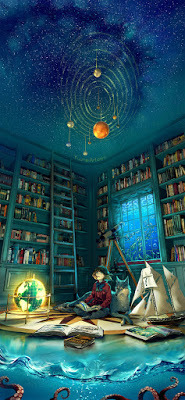 But there was another room behind the desk area. Pale blue light spilled out beneath the door. Mina expected it to be locked, but she tried it anyway. The knob turned easily, and the door fell open. The room was lined in floor to ceiling bookshelves. A glowing globe of the world sat on a star patterned platform at the center of the room. There was a stack of books on the platform and Mina sat beside the pile and spread them out to look. There were no words on the covers. Nothing to indicate what stories they held.
But there was another room behind the desk area. Pale blue light spilled out beneath the door. Mina expected it to be locked, but she tried it anyway. The knob turned easily, and the door fell open. The room was lined in floor to ceiling bookshelves. A glowing globe of the world sat on a star patterned platform at the center of the room. There was a stack of books on the platform and Mina sat beside the pile and spread them out to look. There were no words on the covers. Nothing to indicate what stories they held.
She opened one, startled when a flash of light illuminated the room. She threw her head back to escape the painful brightness and saw that the ceiling had become a starry night. She wanted to think it was a painting, but the stars swirled and moved with life. She peered back down at the pages of the book and saw that there were no words on the pages. She closed it, and the starry night ceiling disappeared, becoming again a smooth white surface ornamented with a mobile of the solar system. She opened the book again, ready this time for the flash of light. When the starry night appeared again, she grinned. Laying the book carefully aside, still open to the blank page she had chosen, she grabbed another book from the pile.
She closed her eyes when she opened this one, and was greeted with a lapping sound, like water sloshing in the bathtub. When she dared to peek out, she saw the floor surrounding the platform was covered in water lapping in gentle waves. She turned to look out the window and saw that it was as if the entire library were underwater. A school of fish spiraled by, turning to peer into the window with their broad, flat eyes.
Excited now, she opened the third book. A wolf materialized and padded towards her. Mina scooted back, her hands poised to slam the book closed. The wolf looked her in the eye, and she wasn’t afraid of him. She felt instinctively that he was there to protect her. When he laid down, presenting his side to her, she didn’t hesitate long before she settled into the curve of his side, and stroked his gray fur while she looked at the still swirling sky.
Her gaze bounced between the apparently blank books and the worlds they had opened. Finally she stood and spoke to the wolf. “Take me home with you,” she said.
Wordlessly, he stood, paced to the corner of the platform where his book still lay open. He looked back over his shoulder and then stepped into the pages and was gone. Mina carefully closed the other books and put them back where she had found them. And then, she followed him.
The room remained as she’d left it, fish swimming outside the window and the milky heavens swirling above. No one was there to hear it when the room sighed, satisfied.
I really liked this week's prompt. It was an art prompt, from a piece called "Boundless" by Yummei and the piece I got from it. Here's "Escape" by yours truly:
______________________________________________
Escape
Books can take you places, they said. Mina thought it was a nice metaphor, the journey of the mind, walking a mile in someone else’s shoes, escape. But she’d read plenty of books in her life, and not a one had actually moved her through time and space, other than making her lose track of time so she had to find a space to hide from her mother’s wrath when she got home late.
That was, until today.
She’d fallen asleep in the bean bag area of the children’s section of the library, curled up between two of the chairs in a little fort she’d constructed of pillows and books. They must have closed without noticing her. She was alone in the library.
Her mother was going to pitch a fit.
Mina crawled out of her hiding space and stretched, wishing she had a snack. She’d be lucky to escape a hiding when she got home. She certainly wouldn’t get anything to eat before she was sent to her punishment.
Since she was already in trouble, she figured it wouldn’t hurt to rummage around a bit. Maybe one of the librarians kept some food in a desk drawer or something.
She padded through the familiar rooms made unfamiliar in darkness broken only by security lights. She passed the story circle already set up for the next day’s reading, an extra-large edition of Where the Wild Things Are in the librarian’s chair and a bucket of monster puppets tucked beneath. She went into the forbidden area behind the check-out desk and rummaged through some drawers looking for food. There wasn’t any.
 But there was another room behind the desk area. Pale blue light spilled out beneath the door. Mina expected it to be locked, but she tried it anyway. The knob turned easily, and the door fell open. The room was lined in floor to ceiling bookshelves. A glowing globe of the world sat on a star patterned platform at the center of the room. There was a stack of books on the platform and Mina sat beside the pile and spread them out to look. There were no words on the covers. Nothing to indicate what stories they held.
But there was another room behind the desk area. Pale blue light spilled out beneath the door. Mina expected it to be locked, but she tried it anyway. The knob turned easily, and the door fell open. The room was lined in floor to ceiling bookshelves. A glowing globe of the world sat on a star patterned platform at the center of the room. There was a stack of books on the platform and Mina sat beside the pile and spread them out to look. There were no words on the covers. Nothing to indicate what stories they held. She opened one, startled when a flash of light illuminated the room. She threw her head back to escape the painful brightness and saw that the ceiling had become a starry night. She wanted to think it was a painting, but the stars swirled and moved with life. She peered back down at the pages of the book and saw that there were no words on the pages. She closed it, and the starry night ceiling disappeared, becoming again a smooth white surface ornamented with a mobile of the solar system. She opened the book again, ready this time for the flash of light. When the starry night appeared again, she grinned. Laying the book carefully aside, still open to the blank page she had chosen, she grabbed another book from the pile.
She closed her eyes when she opened this one, and was greeted with a lapping sound, like water sloshing in the bathtub. When she dared to peek out, she saw the floor surrounding the platform was covered in water lapping in gentle waves. She turned to look out the window and saw that it was as if the entire library were underwater. A school of fish spiraled by, turning to peer into the window with their broad, flat eyes.
Excited now, she opened the third book. A wolf materialized and padded towards her. Mina scooted back, her hands poised to slam the book closed. The wolf looked her in the eye, and she wasn’t afraid of him. She felt instinctively that he was there to protect her. When he laid down, presenting his side to her, she didn’t hesitate long before she settled into the curve of his side, and stroked his gray fur while she looked at the still swirling sky.
Her gaze bounced between the apparently blank books and the worlds they had opened. Finally she stood and spoke to the wolf. “Take me home with you,” she said.
Wordlessly, he stood, paced to the corner of the platform where his book still lay open. He looked back over his shoulder and then stepped into the pages and was gone. Mina carefully closed the other books and put them back where she had found them. And then, she followed him.
The room remained as she’d left it, fish swimming outside the window and the milky heavens swirling above. No one was there to hear it when the room sighed, satisfied.
Published on June 22, 2016 03:00
June 15, 2016
Drink the Lemonade!
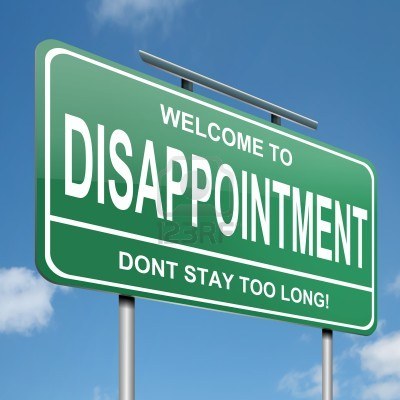 http://racereadycoaching.com/wp-conte... had a big disappointment a week or so ago. I found a great job that I applied for an internal transfer for. I really thought I'd get it. From my perspective, it was a perfect fit--capitalizing on my experience and skills and giving me an opportunity to grow and rediscover my enthusiasm. Just imagining myself in the new role carried me through the tortuous weeks of standardized testing that we finish the school-year with, like the light at the end of a tunnel.
http://racereadycoaching.com/wp-conte... had a big disappointment a week or so ago. I found a great job that I applied for an internal transfer for. I really thought I'd get it. From my perspective, it was a perfect fit--capitalizing on my experience and skills and giving me an opportunity to grow and rediscover my enthusiasm. Just imagining myself in the new role carried me through the tortuous weeks of standardized testing that we finish the school-year with, like the light at the end of a tunnel.And I didn't get it. The light? It was an oncoming train.
And I cried. In fact, I still feel like crying, telling you about it here. I'm burnt out and ready for a change, and it burns my biscuits that what felt like the perfect opportunity was denied me.
But I have to go back and keep the job I was trying to leave, unless life surprises me with an amazing offer in the next few weeks. I have responsibilities, so I can't just go away and sulk. So, that means I have to figure out a way to swallow these lemons quickly, or face a year of bitterness next school year. That's easy with sugar, but sometimes you have to make the sugar yourself.
Now, I say that like it's easy, but it's totally not. That's why people who've had a lot of disappointment end up making this face:
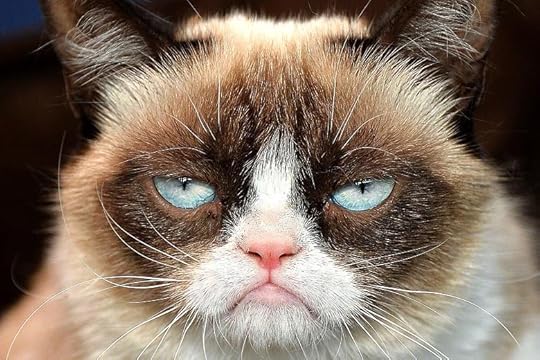 https://zbeads.files.wordpress.com/20... know more than one teacher whose face got stuck like that, just like Mom always told us it would. I don't want to be that teacher.
https://zbeads.files.wordpress.com/20... know more than one teacher whose face got stuck like that, just like Mom always told us it would. I don't want to be that teacher.So, where do I find my sugar to turn these lemons into lemonade so I can swallow it and move on?
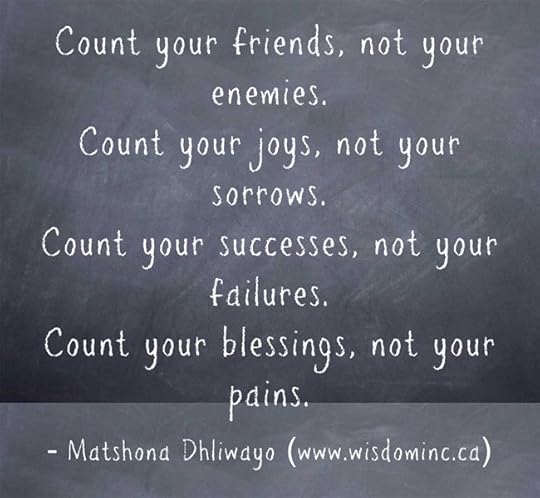 https://s-media-cache-ak0.pinimg.com/...
https://s-media-cache-ak0.pinimg.com/...4a/23/a14a239b4442c9be21dd317ee064c254.jpg1. Count your successes: In my classroom, I have one bulletin board that is covered in student memorabilia. Photographs, cards, art, certificates. Just little things to remind me that in 20 years in the classroom, I've been on the receiving end of a lot of love. That it's not all vitriol.
On an especially bad day, I even make a list. It can be hard to let go of the really awful thing that happened, especially if it happened at the end of the work day and you're going home with that sour taste in your mouth (lemons without sugar).
But if I sit down and think about it, I can always find something that went well. Maybe I was able to make a sad child smile with some of my silliness. Maybe a student who doesn't usually engage participated today. Maybe one of my colleagues said "thank you" for something I do all the time, reminding me that I make a difference.
2. Know what heals you: It may sound like a scene from Sound of Music, but think about your favorite things. Even better, do them. Distraction can be healing. You'll eventually have to face the consequences of whatever happened, but, for a little while, it's okay not to think about it. Channel your inner Scarlet O'Hara and think about that tomorrow.
 http://cdn1.bigcommerce.com/server300...
http://cdn1.bigcommerce.com/server300...1023/images/1220/4288_1__29789.1312921893.600.600.jpg?c=2So, tomorrow you'll figure this out. But today, you can run away a little.
Shoot some things in a videogame, take an extra long walk with your dog, eat something unhealthy and delicious, read a great book, watch a favorite comedy, call your sister and listen to her talk for an hour, build a pillow fort and hide in there, go to a club and shake your money-maker. Whatever works for you.
The key to this is only letting yourself run away for a short time. We're not looking for new recruits for the Lost Boys here. Eventually, you have to come back home.
3. Pick a new goal: There are other things you want. Pick one of those and take a step towards it. Send out another application. Call that someone you've been trying to get brave enough to call. Pick something to redecorate or reorganize. Audition for a play. Create something if you're a maker kind of person. Learn something new. Haven't you always wanted to know how to play an ocarina?
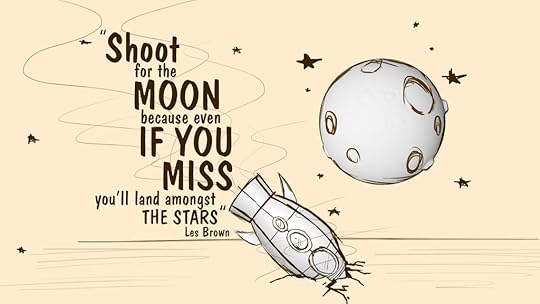 http://img01.deviantart.net/2c71/i/20... me, I'm working on hard on that writing career this summer--I've got a novel to finish and two novellas to write by the end of August. I won't have time to sit around thinking about what might have been in the real world. I'll be too busy working on my new goal by running away to play with my imaginary friends. So there!
http://img01.deviantart.net/2c71/i/20... me, I'm working on hard on that writing career this summer--I've got a novel to finish and two novellas to write by the end of August. I won't have time to sit around thinking about what might have been in the real world. I'll be too busy working on my new goal by running away to play with my imaginary friends. So there!
Published on June 15, 2016 03:00
June 8, 2016
King Kong and Ann Darrow
Given that I'm a gal who enjoys big monster movies, you'd think King Kong would be right up my alley. It's got a giant ape and dinosaurs at the same time, and who doesn't like to see an ape swatting airplanes out of the sky?
But King Kong has always pissed me off. Even when I was a little girl, I hated the story, though I couldn't have explained why. It wasn't just that they killed the ape, though I was and continue to be a softy when it comes to animals. I think it was what the story does with its leading lady. At a subconscious level, I was offended, even when my age was still being counted in single digits.
The story's pretty old (first released as a movie with Fay Wray in 1933), so I don't think I'm spoiling it for you to say that the basic plot outline involves a film director, a young woman, and a giant ape. The ape ends up dying in a fall from a skyscraper after being abducted from his home and displayed in New York City, and with the very last line of the movie, the blame for the entire tragedy is handed to the young woman: "Oh no, it wasn't the airplanes. It was Beauty killed the Beast."
 http://imoviequotes.com/wp-content/up... six-year-old Samantha was going, "What? Um, did you watch the same movie I did? Because I'm thinking Ann didn't actually do a darn thing. How is this her fault?"
http://imoviequotes.com/wp-content/up... six-year-old Samantha was going, "What? Um, did you watch the same movie I did? Because I'm thinking Ann didn't actually do a darn thing. How is this her fault?"
In most versions of King Kong, Ann Darrow is tricked into going to Skull Island. The unscrupulous director who hires her as an actor doesn't fully fill her in on what she's letting herself in for, but instead takes advantage of her youth, naiveté, and her poverty, and smooth-talks her into serving his own purposes. It's interesting that the love interest isn't the manipulative director, but the lead actor, who was also bamboozled into going on this ill-fated voyage. I guess even Hollywood knew they couldn't sell that character as having fallen in love, so they brought in another guy.
The movie was made in 1933, but the 30's also brought us Nora Charles in the Thin Man series, so the year isn't fully an excuse.
I don't know why a giant ape would want young women. You'd think he'd rather have food, or at least another giant ape. But the tribe of people on this island have a tradition of sacrificing a young woman to Kong periodically, and our hapless Ann Darrow is kidnapped, tied to posts, and serves as this year's offering. Given that Kong is never portrayed as able to communicate, I don't know how we're supposed to have arrived at this arrangement, but women as bargaining chips in the games of men is hardly a new thing. Offering your daughters as war prizes or peace offerings goes way back.
 https://mattsko.files.wordpress.com/2... first encounter is hardly the stuff of romance. Ann screams her head off and tries to get away while the stop-motion Kong makes terrifying faces at her and roars a lot.
https://mattsko.files.wordpress.com/2... first encounter is hardly the stuff of romance. Ann screams her head off and tries to get away while the stop-motion Kong makes terrifying faces at her and roars a lot.
Ann's next few scenes are pretty much about her being menaced by one monster and saved by the one who snatched her. I get why the T-Rex and the pterodactyl want her, after all, she's a sizable meal with no armor or spikes to have to chew through. The mythology tells us that Kong is supposed to be smitten and that's why he keep fighting to save her, but it views more like simple possession to me. "Hey that's mine!" There's a part where he removes parts of her dress and examines the cloth, like "what the heck is this stuff?" There's no reason really, other than to make sure we get a nice full view of Ann's trim figure.
In the 1933 Kong, there's no emotional connection between Ann and Kong like there is in later versions. She only looks on him with terror, even when he's saving her from even scarier monsters. No Stockholm Syndrome here. In other tellings, there are these moments when Ann reaches out and touches him gently or tries to make him laugh, because even though her life is in danger, she feels for her captor.
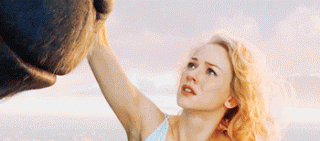 https://66.media.tumblr.com/02b571958...
https://66.media.tumblr.com/02b571958...
But that ending line really gets me.
This idea that it is somehow a woman's job to tame a man rankles me, even when the man is portrayed as an actual beast--and that's part of what that ending line implies. That toxic idea is part of the whole maelstrom of destructive ideas that create rape culture and necessitate feminism. Men are people, women are people. Why should it be my job to "be a good influence" on half the people of the world just because I was born female? Why shouldn't they be responsible for themselves? If men thought about that "boys will be boys" attitude a little longer, they might be insulted, too. Do we, as a culture, really think our men are little better than animals, unable to control their baser urges?
So, poor Ann Darrow: got duped into taking a journey to a dangerous place because some manipulative jerk took advantage of her poverty and desperation, only to end up kidnapped by a giant ape who kills people and other monsters to try and keep her, and then to be blamed for the creature's death because she's beautiful. Gah! What shot did she ever have?
The movie ends without giving much of a hint of what becomes of Ann after Kong is dead. I'd like to think that she learned to take some agency in her own life instead of blowing wherever the wind takes her. More likely, she married her leading man and cried when he left her. Or worse yet, she was sent to an asylum for her nervous condition and fell apart when they take her on a field trip to a zoo and she saw a gorilla.
But King Kong has always pissed me off. Even when I was a little girl, I hated the story, though I couldn't have explained why. It wasn't just that they killed the ape, though I was and continue to be a softy when it comes to animals. I think it was what the story does with its leading lady. At a subconscious level, I was offended, even when my age was still being counted in single digits.
The story's pretty old (first released as a movie with Fay Wray in 1933), so I don't think I'm spoiling it for you to say that the basic plot outline involves a film director, a young woman, and a giant ape. The ape ends up dying in a fall from a skyscraper after being abducted from his home and displayed in New York City, and with the very last line of the movie, the blame for the entire tragedy is handed to the young woman: "Oh no, it wasn't the airplanes. It was Beauty killed the Beast."
 http://imoviequotes.com/wp-content/up... six-year-old Samantha was going, "What? Um, did you watch the same movie I did? Because I'm thinking Ann didn't actually do a darn thing. How is this her fault?"
http://imoviequotes.com/wp-content/up... six-year-old Samantha was going, "What? Um, did you watch the same movie I did? Because I'm thinking Ann didn't actually do a darn thing. How is this her fault?"In most versions of King Kong, Ann Darrow is tricked into going to Skull Island. The unscrupulous director who hires her as an actor doesn't fully fill her in on what she's letting herself in for, but instead takes advantage of her youth, naiveté, and her poverty, and smooth-talks her into serving his own purposes. It's interesting that the love interest isn't the manipulative director, but the lead actor, who was also bamboozled into going on this ill-fated voyage. I guess even Hollywood knew they couldn't sell that character as having fallen in love, so they brought in another guy.
The movie was made in 1933, but the 30's also brought us Nora Charles in the Thin Man series, so the year isn't fully an excuse.
I don't know why a giant ape would want young women. You'd think he'd rather have food, or at least another giant ape. But the tribe of people on this island have a tradition of sacrificing a young woman to Kong periodically, and our hapless Ann Darrow is kidnapped, tied to posts, and serves as this year's offering. Given that Kong is never portrayed as able to communicate, I don't know how we're supposed to have arrived at this arrangement, but women as bargaining chips in the games of men is hardly a new thing. Offering your daughters as war prizes or peace offerings goes way back.
 https://mattsko.files.wordpress.com/2... first encounter is hardly the stuff of romance. Ann screams her head off and tries to get away while the stop-motion Kong makes terrifying faces at her and roars a lot.
https://mattsko.files.wordpress.com/2... first encounter is hardly the stuff of romance. Ann screams her head off and tries to get away while the stop-motion Kong makes terrifying faces at her and roars a lot.Ann's next few scenes are pretty much about her being menaced by one monster and saved by the one who snatched her. I get why the T-Rex and the pterodactyl want her, after all, she's a sizable meal with no armor or spikes to have to chew through. The mythology tells us that Kong is supposed to be smitten and that's why he keep fighting to save her, but it views more like simple possession to me. "Hey that's mine!" There's a part where he removes parts of her dress and examines the cloth, like "what the heck is this stuff?" There's no reason really, other than to make sure we get a nice full view of Ann's trim figure.
In the 1933 Kong, there's no emotional connection between Ann and Kong like there is in later versions. She only looks on him with terror, even when he's saving her from even scarier monsters. No Stockholm Syndrome here. In other tellings, there are these moments when Ann reaches out and touches him gently or tries to make him laugh, because even though her life is in danger, she feels for her captor.
 https://66.media.tumblr.com/02b571958...
https://66.media.tumblr.com/02b571958...But that ending line really gets me.
This idea that it is somehow a woman's job to tame a man rankles me, even when the man is portrayed as an actual beast--and that's part of what that ending line implies. That toxic idea is part of the whole maelstrom of destructive ideas that create rape culture and necessitate feminism. Men are people, women are people. Why should it be my job to "be a good influence" on half the people of the world just because I was born female? Why shouldn't they be responsible for themselves? If men thought about that "boys will be boys" attitude a little longer, they might be insulted, too. Do we, as a culture, really think our men are little better than animals, unable to control their baser urges?
So, poor Ann Darrow: got duped into taking a journey to a dangerous place because some manipulative jerk took advantage of her poverty and desperation, only to end up kidnapped by a giant ape who kills people and other monsters to try and keep her, and then to be blamed for the creature's death because she's beautiful. Gah! What shot did she ever have?
The movie ends without giving much of a hint of what becomes of Ann after Kong is dead. I'd like to think that she learned to take some agency in her own life instead of blowing wherever the wind takes her. More likely, she married her leading man and cried when he left her. Or worse yet, she was sent to an asylum for her nervous condition and fell apart when they take her on a field trip to a zoo and she saw a gorilla.
Published on June 08, 2016 03:00



